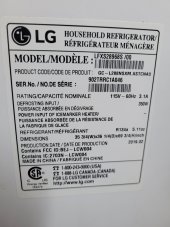Jsands
New Member
Good day, this is my first post. I’m grateful for this forum, as I have learned a lot.
I will explain my set up and my issue.
Setup: I have two EG4 6500’s in split phase (2P1 and 2P2/180). These were ordered last fall so I believe they still have grounding nut. I have done the firmware update, but have not cracked the box yet to remove the nut.
I have six EG4 batteries hooked up.
I also have grid power connected.
I run the system on SBU priority.
I then run the AC output from the inverters to a 3 pole/double throw transfer switch (which allows me to bypass the solar/battery system altogether and just run on grid), before I feed my “solar subpanel” circuits.
During the day my PV array and the batteries can run everything without issue. When the sun goes down and I lose PV input the batteries do all the work.
My issue: every night, when the batteries run low and the grid kicks in to support with power and charge the batteries, my refrigerator breaker blows. It is only this breaker. Nothing else has any issues. During the day when I’m running on solar/battery it works fine.
Signature solar thought maybe I have a neutral/ground bonding issue.
question- anyone else had this problem?
Should I remove grounding nuts from one or both 6500’s?
Perhaps I have a neutral/ground issue in my 3pole/double throw transfer switch?
Grateful for any insight or ideas.
I will explain my set up and my issue.
Setup: I have two EG4 6500’s in split phase (2P1 and 2P2/180). These were ordered last fall so I believe they still have grounding nut. I have done the firmware update, but have not cracked the box yet to remove the nut.
I have six EG4 batteries hooked up.
I also have grid power connected.
I run the system on SBU priority.
I then run the AC output from the inverters to a 3 pole/double throw transfer switch (which allows me to bypass the solar/battery system altogether and just run on grid), before I feed my “solar subpanel” circuits.
During the day my PV array and the batteries can run everything without issue. When the sun goes down and I lose PV input the batteries do all the work.
My issue: every night, when the batteries run low and the grid kicks in to support with power and charge the batteries, my refrigerator breaker blows. It is only this breaker. Nothing else has any issues. During the day when I’m running on solar/battery it works fine.
Signature solar thought maybe I have a neutral/ground bonding issue.
question- anyone else had this problem?
Should I remove grounding nuts from one or both 6500’s?
Perhaps I have a neutral/ground issue in my 3pole/double throw transfer switch?
Grateful for any insight or ideas.



